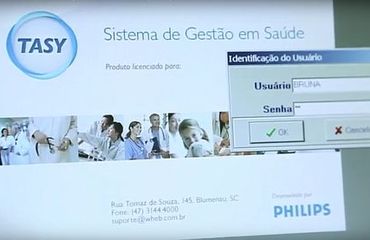São Paulo – A private hospital in Saudi Arabia will be the first in the Arab world to rely on Tasy, a healthcare management software developed by the Brazilian arm of Philips. Customization work for the Saudi hospital began in February of this year, and the rollout date is being decided upon.
“Tasy covers everything from front desk check-in to tasks such as finding beds and assigning means to patients, including the recording of medical information by cardiologists, oncologists etc.,” explains Jérôme Galbrun, the global head of Marketing at Philips’ Electronic Medical Records Unit.
Designed by Santa Catarina state-based company Wheb Sistemas, Tasy is undergoing development and improvement by Philips since 2010, when the Dutch company bought over the Brazilian one. Now, Tasy is used in over 1,000 hospitals across Brazil, and it went international in 2013, starting with Mexico.
Tasy covers all healthcare management tasks, including cash flow control, electronic medical records, revenue and accounting control, etc.
Each of Tasy’s export versions will be developed by a team of Brazilian managers and developers that will work with foreign clients to create a tailor-made system. “We carry out development together with the client. Clients get exactly what they expect,” says Galbrun.
The second non-local client to adopt Tasy was a hospital in Germany, with development beginning in February and operation slated to begin in March 2018.
Saudi Arabia is the third country Philips is bringing the Brazilian software into. Galbrun declined to disclose the name of the Saudi hospital, but explains that it is already a Philips client which chose Tasy in order to expand its activities by using Tasy. “We have had groups over to Riyadh and we have collected requirements from physicians and the administration,” the executive says.
“We are in the process of developing the software and getting it ‘Arabicized.’ The software will operate in English and Arabic, because the hospital staff includes Saudi and expatriate personnel,” says Galbrun.
The executive regards Saudi Arabia as a “very interesting” market. “There is a very strong demand for improvement of the country’s healthcare system. They wish to improve the quality of life for the people who live there,” he claims. Galbrun points out that the government is interested in having the private sector play a bigger role in fields such as healthcare.
He claims there are similarities between hospital management in Brazil and Saudi Arabia. “People try to streamline [processes] as much as they can. Brazil is one of the most advanced countries in the world when it comes to hospital digitalization,” he said, adding that many hospitals in Europe still rely on paper for their processes.
“There’s this similarity [between Brazil and Saudi Arabia] of wanting a fully digital healthcare management. The United States are doing it with a much more expensive approach, whereas Brazil is going about it a cheaper, faster way,” he ponders.
Galbrun stresses that Tasy “is a hallmark success story that was born in Brazil and then moved abroad.” The software is the first Brazilian-made healthcare management system developed by Philips to go international.
According to Galbrun, the company is in talks with hospitals in other countries across the Gulf Cooperation Council, which comprises Saudi Arabia, the UAE, Qatar, Oman, Bahrain and Kuwait. According to him, the fact that the company is developing the software in Arabic has piqued the interest of hospitals in neighboring countries.
*Translated by Gabriel Pomerancblum




